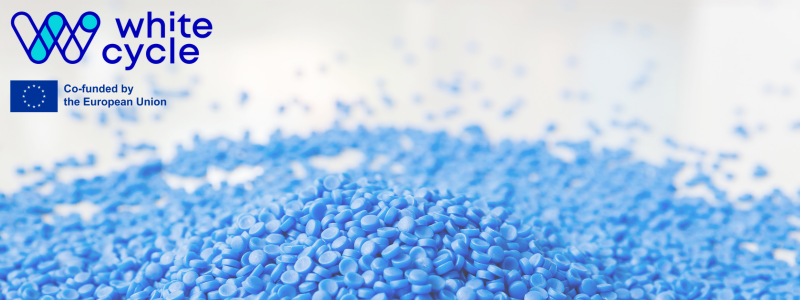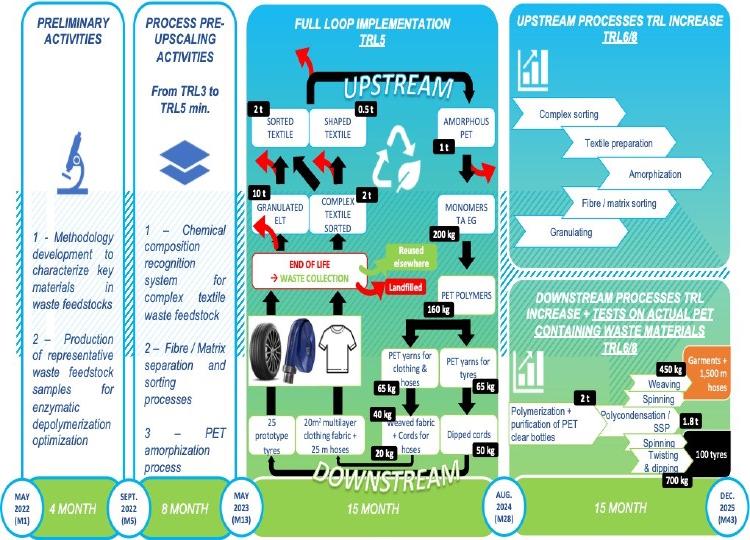WHITECYCLE, a European project led by Michelin

The project
The Université Clermont Auvergne is a partner of the WHITECYCLE consortium, a European project led by Michelin. This project brings together fifteen private and public partners from five different countries: France, Germany, Norway, Spain, and Turkey. The WHITECYCLE scheme aligns with the European Commission's action plan for a circular economy.
This European action plan, adopted in March 2020, identified plastics as one of the priority products for recycling, given their environmental impacts and their circularity potential. The European strategy envisages the redefinition of the plastics value chain to make it fully circular by 2030.

The WHITECYCLE project aims to develop a circular solution to transform complex textile-based plastic waste into high-value products. Complex plastic waste, such as tires, pipes, and multi-material textiles, is difficult to recycle with traditional methods. The WHITECYCLE project aims to enable the implementation of three circular plastic value chains at an industrial scale. Its target is polyethylene terephthalate (PET), the third most used polymer in the world (82 million tonnes produced in 2019).
It is worth noting that 63% of PET is used to produce textiles, mainly for clothing (33 million tonnes), other applications such as furniture (16 million tonnes), and finally, technical fibers (3 million tonnes) used for tires, belts, and geotextiles. The remaining 37% of PET is utilized to manufacture packaging and flexible components.
The team UCA-CERDI

Arnaud Diemer
Project managerT
Two engineers will join the CERDI to work on this project.
UCA and CERDI's contribution to the project
Arnaud Diemer's team will assess the economic, social, and environmental impacts of implementing a circular waste treatment solution for PET-containing waste (Work Package 6).
This assessment is three-fold:- A benefit-cost analysis: The team will study the market structure and the company's economic performance. The goal here is to map existing and proposed circular economy strategies and see how they influence the viability of value chains in the innovation cycle. The focus is on value creation for the various actors in all the different stages of production.
- A social impact assessment: The team will also conduct a social analysis of the life cycle of the innovations. It will also include an appraisal of the potential social acceptance. The team will use survey techniques, participatory modeling approaches, and narratives to understand the most realistic scenarios.
- Mapping and system dynamics modeling: The team will integrate the results of the assessments into a dashboard and map the interactions between flows and stakeholders. This analysis of material flows will include system dynamics modeling (causal loop analysis, stock-flow model, leverage points, etc.) and Industrial Web to envision the deployment of the circular economy in a specific territory.
The partners

More info
White Cycle website
